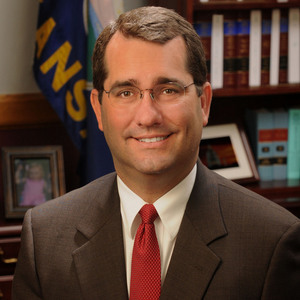Kansas challenges EPA ethanol emissions model

December 10, 2014
BY Kansas Attorney General's Office
Kansas Attorney General Derek Schmidt has asked a federal appeals court to block new U.S. EPA regulations that discourage the use of ethanol by requiring states to adopt conclusions about ethanol emissions not backed by scientific facts.
The lawsuit, filed in the D.C. Circuit Court of Appeals, asks the court to reject new EPA regulations that will require states to immediately begin using the MOVES2014 model in their state implementation plans (SIPs) for controlling pollutants governed by national air quality standards. By implementing the MOVES2014 model without the opportunity for review and comment by the states and affected parties, the EPA forces states to measure emissions from ethanol-blended fuels in a way that incorrectly predicts higher levels of pollution.
The MOVES2014 model is based on an EPA-commissioned fuel study that purports to analyze the emissions effects of different fuel parameters, including ethanol content, while artificially and unnecessarily holding other fuel parameters constant. This so-called “match-blending” methodology unfairly targets ethanol and assigns disproportionate negative emissions effects. The dictated use of this model effectively blocks states from encouraging the use of ethanol as part of their clean air plans.
“Ethanol production is an important industry for Kansas and grain agriculture specifically,” Schmidt said. “EPA’s requirement that states use this faulty model was unlawfully adopted without notice and opportunity for comment. This is an example of the EPA imposing its will on the states rather than working cooperatively toward the shared goal of cleaner air. We are asking that this model be rejected and replaced with a model that more accurately reflects the true emission effects of ethanol.”
Advertisement
Advertisement
The case is State of Kansas, et al. v. U.S. Environmental Protection Agency, et al., in the U.S. Court of Appeals for the D.C. Circuit. Nebraska Attorney General Jon Bruning, the Energy Future Coalition, and the Urban Air Initiative, Inc. joined Schmidt in filing the case.
Advertisement
Advertisement
Related Stories
CoBank’s latest quarterly research report, released July 10, highlights current uncertainty around the implementation of three biofuel policies, RFS RVOs, small refinery exemptions (SREs) and the 45Z clean fuels production tax credit.
The U.S. Energy Information Administration maintained its forecast for 2025 and 2026 biodiesel, renewable diesel and sustainable aviation fuel (SAF) production in its latest Short-Term Energy Outlook, released July 8.
XCF Global Inc. on July 10 shared its strategic plan to invest close to $1 billion in developing a network of SAF production facilities, expanding its U.S. footprint, and advancing its international growth strategy.
U.S. fuel ethanol capacity fell slightly in April, while biodiesel and renewable diesel capacity held steady, according to data released by the U.S. EIA on June 30. Feedstock consumption was down when compared to the previous month.
XCF Global Inc. on July 8 provided a production update on its flagship New Rise Reno facility, underscoring that the plant has successfully produced SAF, renewable diesel, and renewable naphtha during its initial ramp-up.
Upcoming Events










